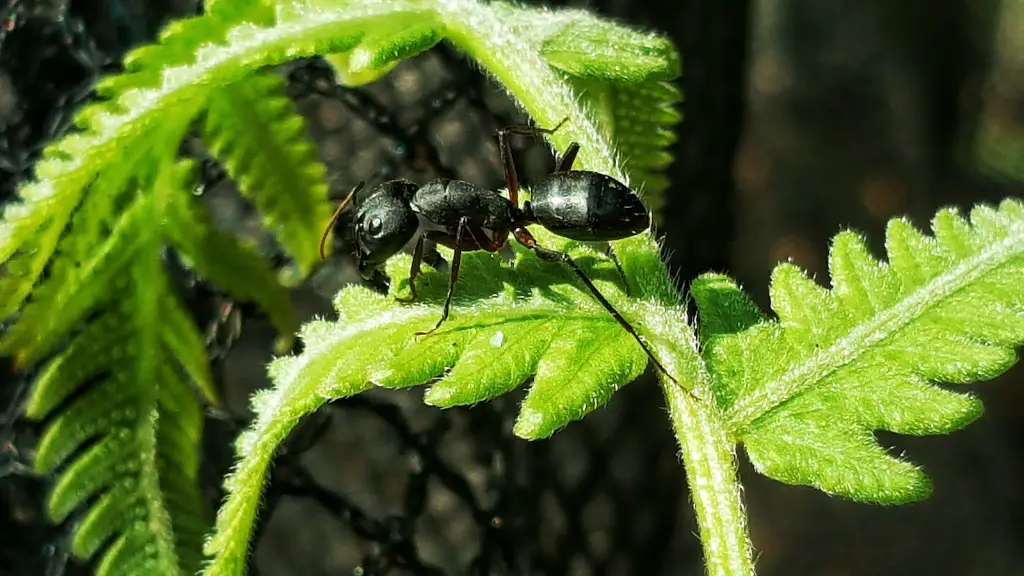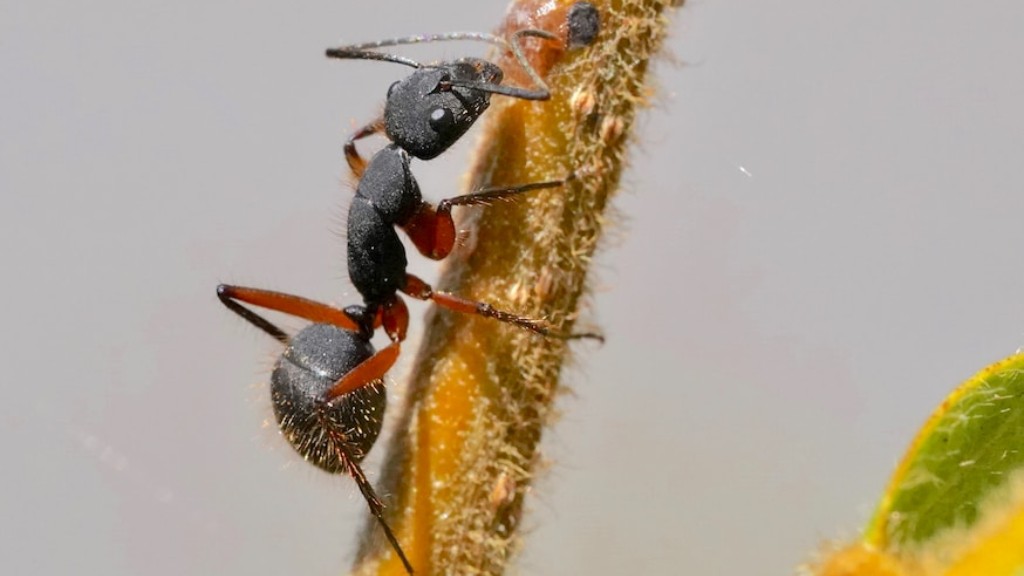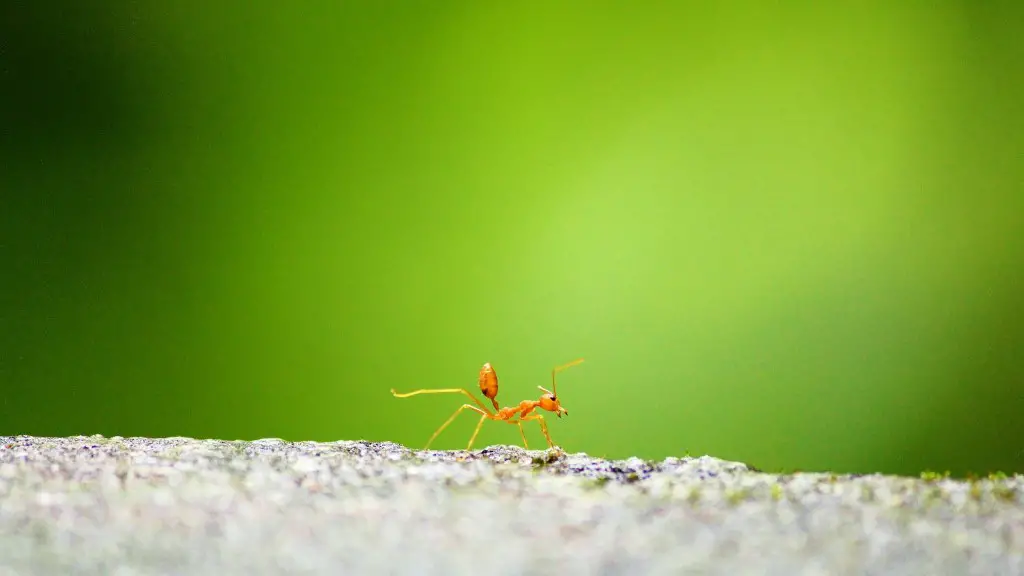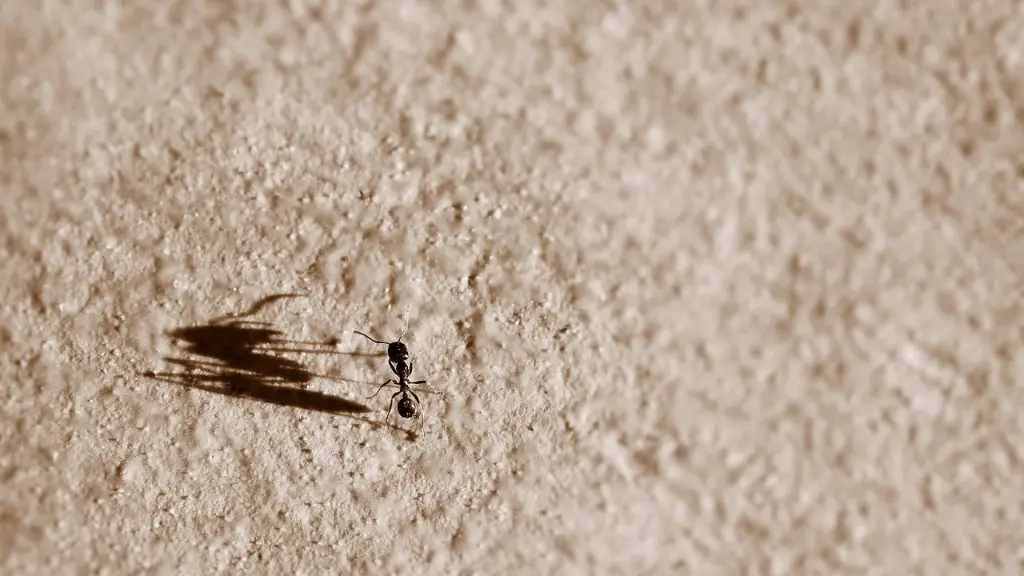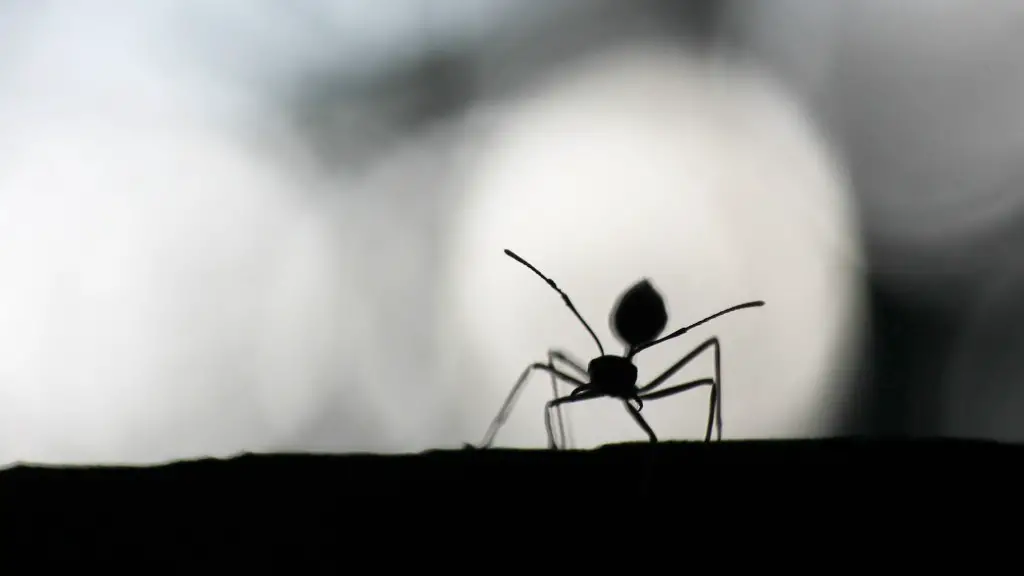Ants are unwelcome invaders of yards and gardens alike. Thus, it is important to know how to control ants in your yard. The best plan of action can be determined by understanding the habitat and food sources of ants, as well as the different types of treatment – from chemical to natural – available for infestation control.
Habitat and Food Sources of Ants
Ants are social insects that live in colonies, building elaborate underground networks of tunnels and chambers. Depending on the species, ant colonies can vary in size; some with fewer than a hundred members, some with hundreds of thousands. As most of the member ants of the colony stay hidden underground, it is essential to identify the types of ants infiltrating your yard in order to choose the right treatment.
Ants are scavengers and omnivores, meaning their diet is composed of both plant and animal matter. Common foods sources for yard ants include ripened fruits and vegetables, sugary drinks, and other sweet foods, as well as insects, meat, and pet food.
Types of Treatment
Chemical treatments for ant control contain insecticides that kill the worker ants on contact. These insecticides are available in various forms such as liquid bait, gel bait, granules, and sprays.
Non-chemical treatments include the releasing of ant traps, insecticides or beneficial nematodes into the soil or upon ant hills. Other effective strategies include placing food-grade diatomaceous earth around the yard and cutting off the ants’ food sources and access routes.
Identifying Ants
To determine which type of treatment is best suited for ant control, it is important to distinguish between species of ants. Ants belong to the Formicidae family, which is divided into more than twenty different subfamilies, many of which have thousands of species. The most common ants found in yards and gardens are the pavement ants, carpenter ants, Pharoah ants, Argentine ants, and odorous house ants.
Identification can be done by observing the structure and color of the ant’s body and antennae. Pavement ants are small and black, carpenter ants are large and black, Argentine ants are small and yellow-brown, and Pharoah ants and odorous house ants are both small and yellow-brown.
Professional Inspection
Before selecting a treatment option, it is best to consult with a professional pest control specialist, who can identify and inspect the entire ant colony. After the assessment, the specialist will be able to determine the best ant control solution, provide an effective ant treatment plan, and offer valuable insight and advice on how to prevent infestations in the future.
In some cases, a combination of the chemical and non-chemical treatment may be necessary to fully eradicate an ant colony. For example, the application of an insecticide after the use of ant traps or beneficial nematodes can provide a solid plan for treating an infestation.
Home Remedies
In terms of home remedies, prevention and removal of food sources can have a powerful effect on reducing ant infestation. Keeping fruit and sweet food items stored in airtight containers whenever possible, and quickly removing spilled items from surfaces, is a good start. Vacuuming up the ants and then disposing of the bag immediately is also effective.
Finally, the use of natural repellents is another option. For example, peppermint oil has a strong scent that acts as a natural repellent, while garlic and chili powder can be sprinkled around the yard.
Preventative Measures
Preventative measures are key when it comes to ant control, as it is much easier to protect your space than attempt to eliminate an infestation. To prevent an ant invasion, it is important to fill or seal any entry or exit points – such as cracks in walls and doors – that may be within your home.
Exteriorly, inspect all windows, doors, and porch steps for pest entry, and repair any physical defects. To protect the yard from future infestations, try to landscape with shrubs that stand away from the house and use rocks or gravel under plants for easy access and control.
Pest Management Programs
Developing a pest management program with a pest control expert can offer your yard the best possible protection from ant infestation. A professional pest control program consists of periodic preventative visits and inspections, which allows for the optimization of strategies and strategies, as well as timely detection and treatment to address ant and other pest problems.
The use of trained professionals can help ensure the safety of your home and yard, as they are experienced in correctly applying various pest control treatments and can also recognize any warning signs that may signal an oncoming infestation.
Find an Expert
When seeking out an ant control expert,
